


Apr 23, 2025
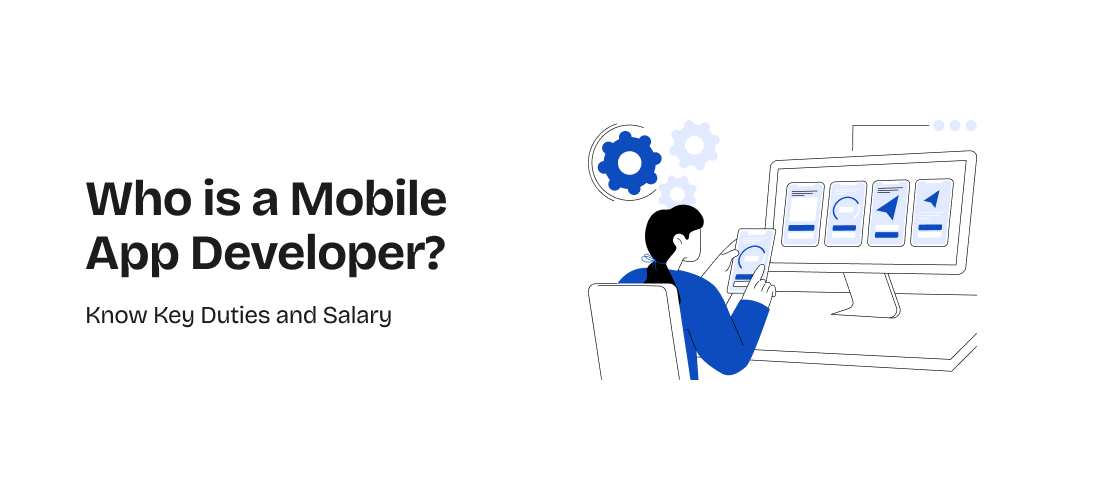
Mobile applications have made engaging with and dispensing services easy for consumers and businesses. Mobile app design and development is quickly becoming a much sought-after skill as demand for mobile apps increases. Businesses hoping to introduce something new in the market or make their services more accessible to a wider audience require good mobile app developers to bring these ideas to life and design and develop applications that attract and retain customers.
From simple utility apps to complex, feature-rich platforms, mobile app developers play a crucial role in shaping our digital experiences. Here, we’ll understand the key duties, skills, and salary expectations for these professionals which is essential for anyone looking to enter or advance in the field of mobile app design and development.
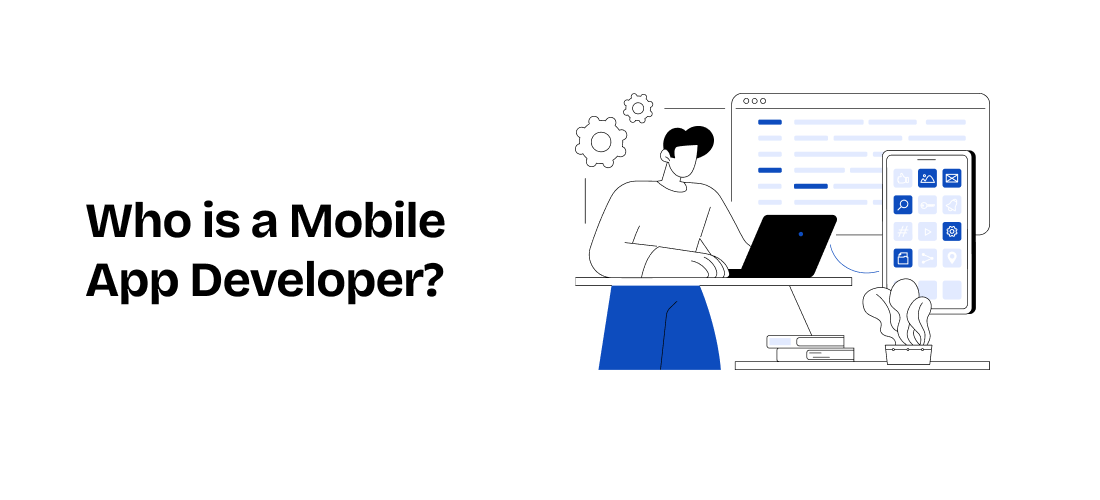
A mobile app developer is a software professional specializing in designing, building, and maintaining mobile applications for smartphones and tablets. These developers possess a unique skill set that combines programming expertise with an understanding of user experience (UX) design, mobile platform guidelines, and the specific constraints and capabilities of mobile devices.
Mobile app developers play a pivotal role in the creation of mobile applications that meet the needs of users and businesses alike. Whether developing apps for iOS, Android, or cross-platform solutions, these professionals must navigate a complex landscape of technical requirements, design standards, and user expectations.
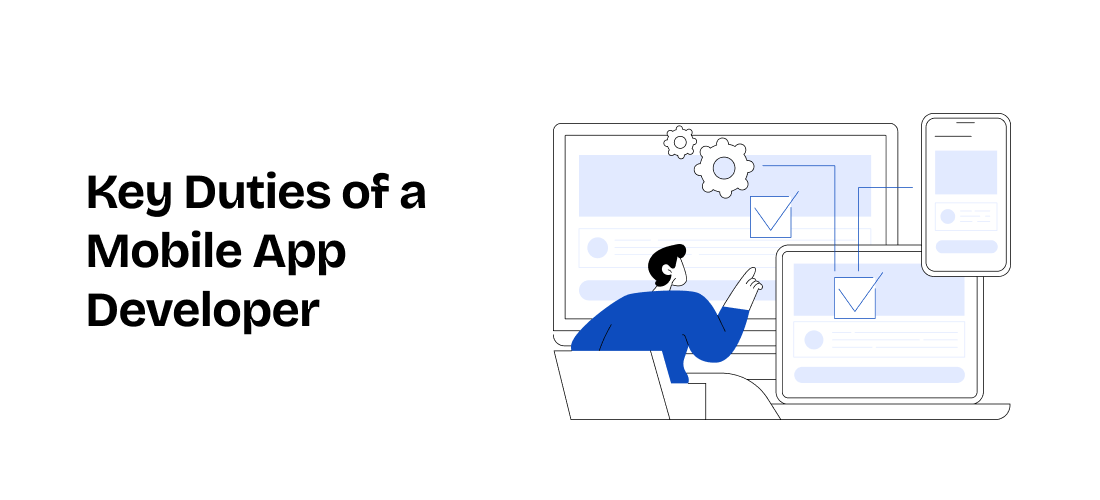
Mobile app developers are responsible for a wide range of tasks throughout the mobile app design and development process. Their duties typically encompass the following areas:
Before starting the development process, mobile app developers work closely with clients, product managers, and other stakeholders to understand the app’s goals, target audience, and desired features. This phase involves gathering and analyzing requirements to create a detailed plan for the app’s design, development, and deployment.
Key Activities:
While mobile app developers are primarily focused on coding, they often work closely with UI/UX designers to ensure that the app’s design aligns with the overall user experience goals. Developers must translate design concepts into functional interfaces that are intuitive, visually appealing, and responsive across different devices.
Key Activities:
Coding is at the core of a mobile app developer’s responsibilities. Depending on the platform (iOS, Android, or cross-platform), developers use different programming languages, frameworks, and tools to build the app’s functionality. They write clean, efficient, and maintainable code that powers the app’s features and ensures optimal performance.
Key Activities:
Testing and debugging are critical stages in the mobile app design and development process. Mobile app developers are responsible for ensuring that the app functions correctly, is free of bugs, and provides a smooth user experience. This involves conducting various types of testing, including functional, performance, and usability testing.
Key Activities:
Once the app is developed and tested, mobile app developers are responsible for deploying it to the appropriate app stores (Apple App Store for iOS or Google Play Store for Android) and ensuring that it meets the platform-specific guidelines for submission. After deployment, developers continue to provide support by maintaining and updating the app as needed.
Key Activities:
Security is a top priority in mobile app design and development. Mobile app developers must ensure that the app is secure and compliant with relevant regulations and standards. This involves implementing best practices for data protection, encryption, and secure coding.
Key Activities:
Mobile app development is a collaborative effort that involves working with various teams, including designers, product managers, testers, and clients. Effective communication and collaboration are essential for ensuring that the project runs smoothly and meets the desired outcomes.
Key Activities:
Also Read – Best Practices in Mobile App Design
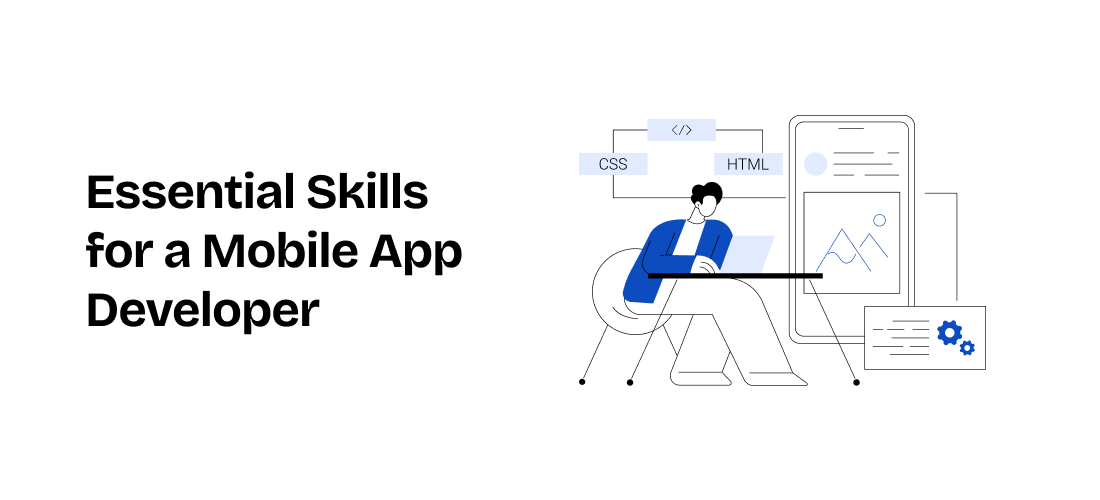
To excel in mobile app design and development, developers need a diverse set of technical and soft skills. These skills enable them to navigate the complexities of app development and deliver high-quality products that meet user needs and business objectives.
Mobile app developers must be proficient in programming languages relevant to the platform they are developing for. This includes:
Each mobile platform (iOS and Android) has its own design and development guidelines that developers must adhere to. Understanding these guidelines is crucial for creating apps that provide a consistent user experience and meet platform-specific requirements.
While mobile app developers may not be responsible for creating the app’s design, they need a solid understanding of UI/UX design principles to implement designs effectively. This includes knowledge of:
Mobile app developers must be adept at identifying and resolving issues that arise during development. This requires strong problem-solving and debugging skills to troubleshoot errors, optimize code, and ensure the app runs smoothly.
Many mobile apps rely on backend services for data storage, user authentication, and other functionalities. Mobile app developers should have a basic understanding of backend development, including APIs, databases, and server-side logic, to integrate these services effectively.
Security is a critical aspect of mobile app design and development. Developers must be familiar with best practices for securing data, preventing unauthorized access, and protecting the app from vulnerabilities.
Effective communication and teamwork are essential for collaborating with other developers, designers, product managers, and clients. Mobile app developers need strong interpersonal skills to work effectively in cross-functional teams and ensure the successful delivery of the project.
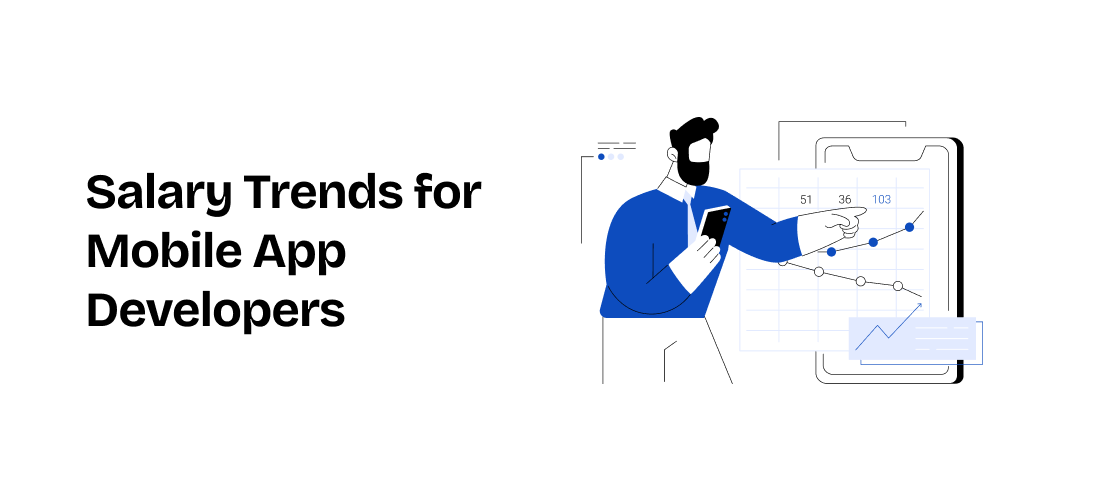
The demand for mobile app developers has grown significantly in recent years, driven by the increasing reliance on mobile technology across industries. As a result, mobile app developers can command competitive salaries, which vary based on factors such as experience, location, and the complexity of the projects they work on.
Entry-level mobile app developers typically have less than two years of experience and are in the early stages of their careers. They often work under the guidance of senior developers and contribute to coding, testing, and basic app development tasks.
Mid-level mobile app developers have gained several years of experience and have a deeper understanding of mobile app design and development. They take on more complex projects and may have additional responsibilities such as mentoring junior developers and leading small teams.
Senior mobile app developers have extensive experience in the field and are responsible for overseeing large-scale projects, making architectural decisions, and ensuring the overall quality of the app. They may also be involved in strategic planning and client communication.
Several factors influence the salary of a mobile app developer, including:
Also Read – Understanding the Building Blocks of Mobile App Design
Mobile app developers take up several duties, from coding and debugging to collaborating with designers and deploying apps to market. Succeeding as a mobile app developer requires proficiency in programming languages, an understanding of UI/UX design principles, and knowledge of security best practices.
As the demand for mobile app design and development continues to grow, so do the opportunities for skilled developers to advance their careers and command competitive salaries. Whether you’re an aspiring developer looking to break into the industry or an experienced professional seeking to enhance your skills, understanding the key duties, skills, and salary trends associated with mobile app development is essential for achieving success in this exciting field.